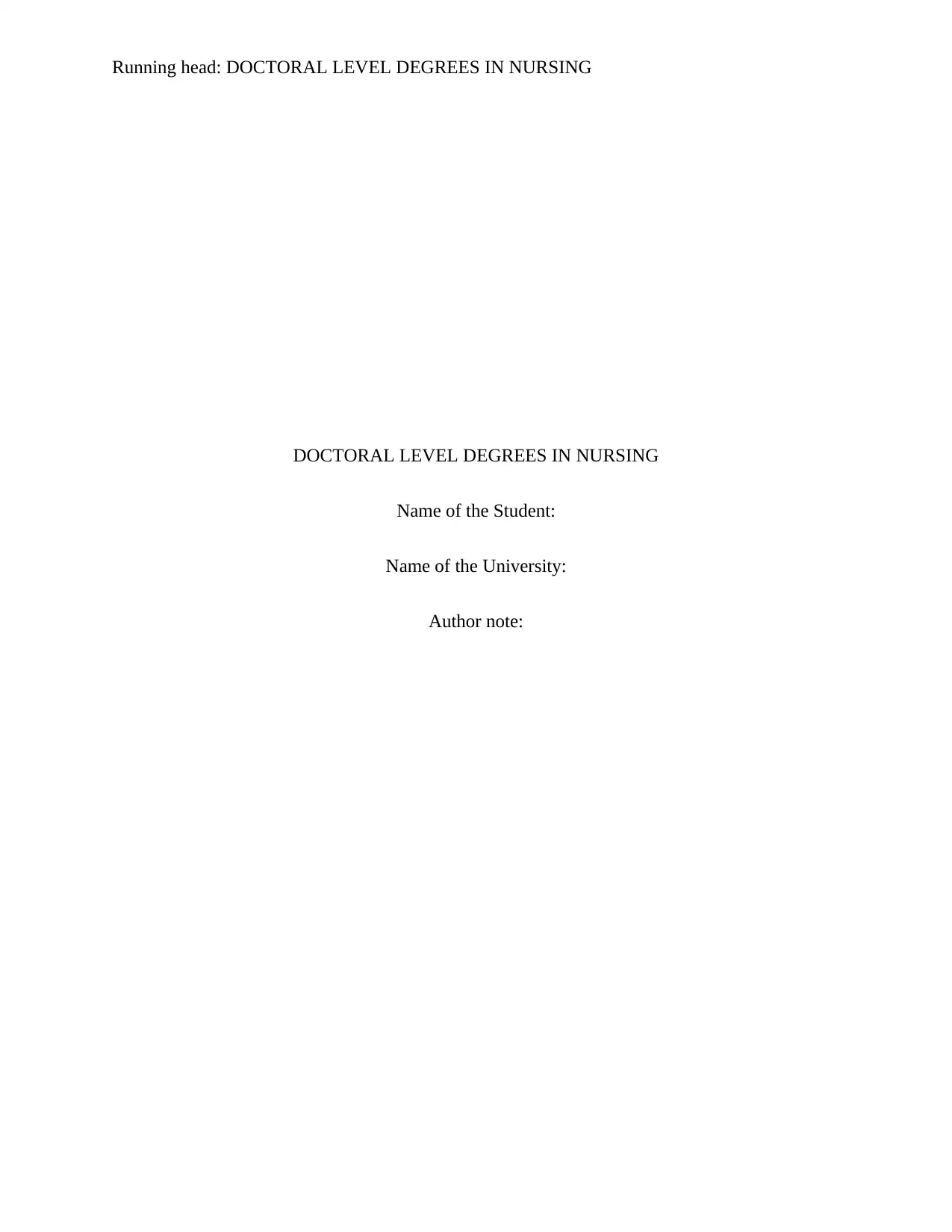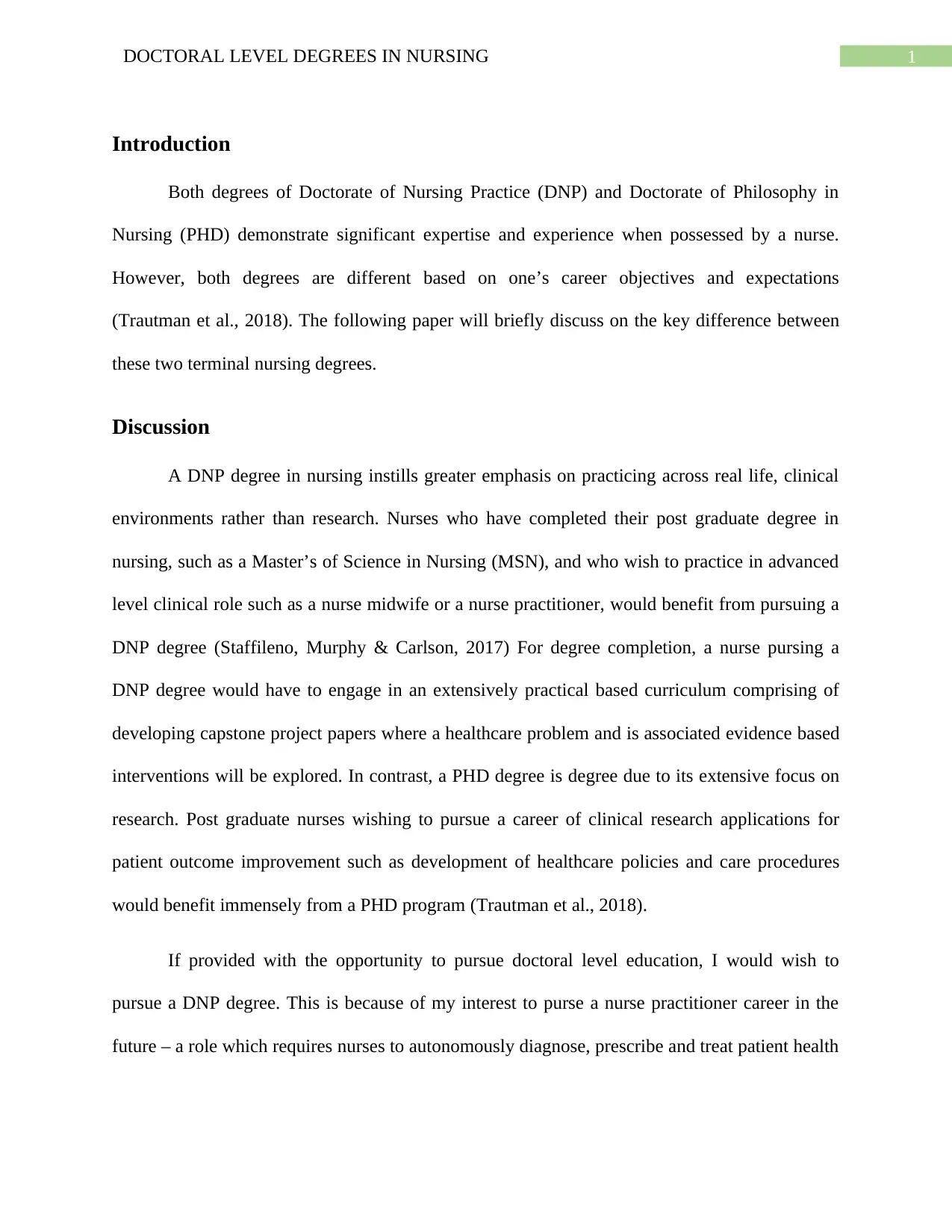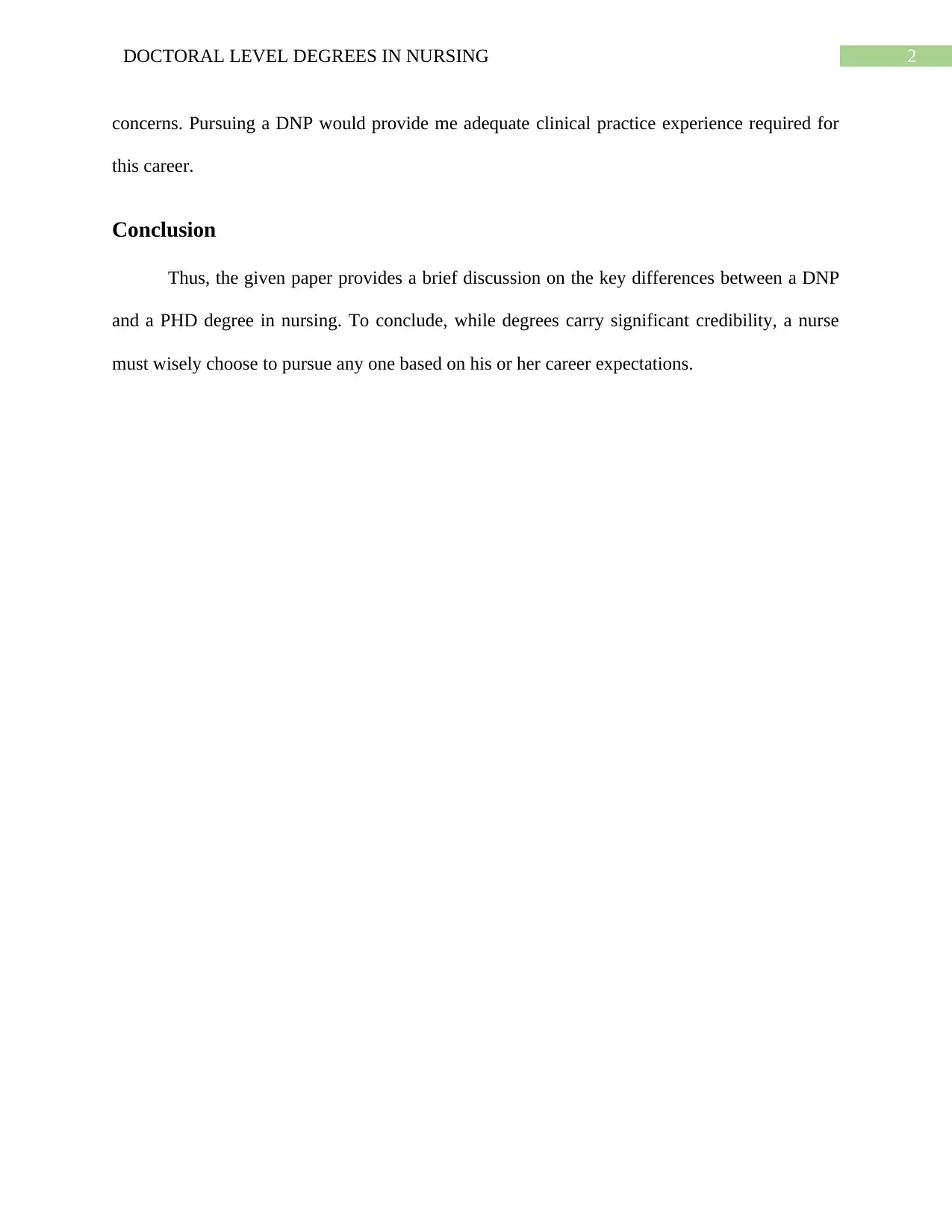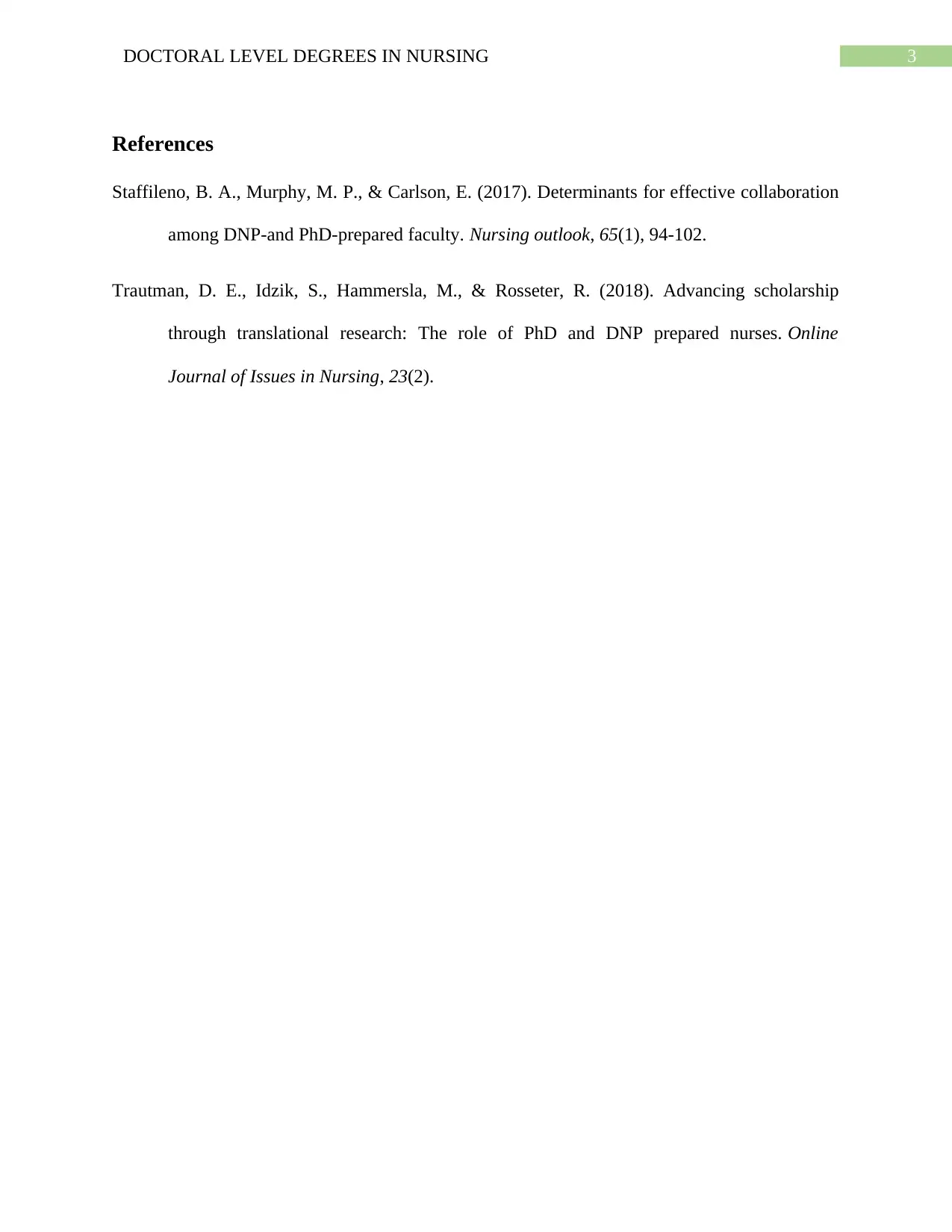A Comparison of DNP and PhD Nursing Doctoral Degrees
VerifiedAdded on 2022/08/22
|4
|491
|45
Report
AI Summary
This report provides a comparative analysis of Doctor of Nursing Practice (DNP) and Doctor of Philosophy in Nursing (PhD) degrees. The author explores the key differences between the two doctoral programs, emphasizing their distinct focuses and career implications. The DNP is highlighted for its emphasis on real-world clinical practice, making it suitable for nurses aspiring to advanced clinical roles like nurse practitioners. Conversely, the PhD is presented as ideal for those interested in clinical research, healthcare policy, and patient outcome improvement. The author expresses a preference for the DNP, aligning with their career goal of becoming a nurse practitioner. The report concludes by underscoring the importance of choosing a doctoral program that aligns with one's career aspirations, providing a concise overview of the contrasting aspects of DNP and PhD programs and their relevance to nursing careers.
1 out of 4











![[object Object]](/_next/static/media/star-bottom.7253800d.svg)